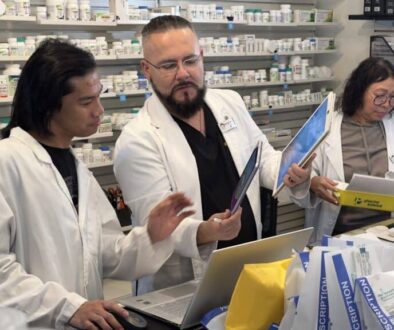Natural Remedies for Hemorrhoids: Exploring Plant Flavonoids
Natural Remedies for Hemorrhoidal Disease: Exploring Plant Flavonoids
Hemorrhoidal disease affects a significant portion of the adult population, leading to various discomforting symptoms. This blog delves into natural supplements, particularly plant flavonoids, that can alleviate the signs and symptoms associated with this condition.
Table of Contents
- Understanding Hemorrhoids and Hemorrhoidal Disease
- Conventional Treatments for Hemorrhoids
- The Role of Natural Supplements
- Introduction to Plant Flavonoids
- Combining Diosmin and Hesperidin
- Other Natural Treatments
- Vitamin C and Other Plant-Based Supplements
- The Synergistic Power of Diosmin and Hesperidin
- Additional Natural Treatments
- Vitamin C and Its Role in Hemorrhoidal Disease
- Conclusion: Effectiveness of Natural Supplements
- FAQs About Hemorrhoidal Disease and Treatment Options
Understanding Hemorrhoids and Hemorrhoidal Disease
Hemorrhoids are vascular cushions located in the anal canal that aid in fecal continence. While they are a normal part of human anatomy, complications can arise, leading to what is known as hemorrhoidal disease.
It’s estimated that up to 75% of adults will experience hemorrhoidal disease at some point in their lives. This condition manifests when hemorrhoids become inflamed or swollen, resulting in discomfort and various symptoms.
The signs and symptoms of hemorrhoidal disease can vary but typically include:
- Bright red blood in stool or on toilet paper
- Pain or discomfort around the anal area
- Itching or irritation
- Swelling or edema
- Prolapse of hemorrhoids
- Thrombosis or clot formation in hemorrhoids
These symptoms can significantly impact daily activities and quality of life, making effective treatment essential.
Conventional Treatments for Hemorrhoids
Conventional treatments primarily focus on lifestyle changes and medical interventions. These may include:
- Increased dietary fiber intake
- Regular exercise
- Topical treatments and medications
- Surgical options for severe cases
While these methods can be effective, many individuals seek alternative solutions for symptom relief.
The Role of Natural Supplements
Natural supplements have gained attention for their potential to alleviate symptoms of hemorrhoidal disease. Among these, plant flavonoids are particularly noteworthy due to their health benefits.
However, it’s crucial to consult a healthcare provider before starting any supplement regimen, as interactions with prescribed medications can occur.
Introduction to Plant Flavonoids
Flavonoids are natural compounds found in plants that offer various health benefits. They possess antioxidant, anti-inflammatory, and vasoprotective properties, making them ideal candidates for treating hemorrhoidal disease.
Key flavonoids, such as diosmin and hesperidin, have been extensively researched for their effects on vascular health and inflammation.
Diosmin: Benefits and Effects
Diosmin, a plant flavonoid derived from sweet oranges, has shown multiple beneficial effects for hemorrhoidal disease. Its key properties include:
- Anti-inflammatory effects through inhibition of prostaglandins
- Reduction in capillary permeability
- Improved venous tone
These actions contribute to alleviating symptoms like pain, bleeding, and swelling associated with hemorrhoids.
Hesperidin: Complementary Effects
Hesperidin, another flavonoid found in citrus fruits, complements the effects of diosmin. It helps to:
- Reduce capillary permeability
- Increase capillary resistance
- Exhibit anti-inflammatory properties
The synergistic effect of diosmin and hesperidin enhances their overall efficacy in managing hemorrhoidal symptoms.
Combining Diosmin and Hesperidin
The combination of diosmin and hesperidin is often referred to as Daphlon. Research indicates that this mixture can significantly reduce the signs and symptoms of hemorrhoids, including:
- Decrease in hemorrhoid prolapse
- Reduction in bleeding
- Lessening of pain and itching
Notably, effects may become more pronounced after several days of consistent use.
Other Natural Treatments
In addition to diosmin and hesperidin, other plant-based supplements can enhance treatment outcomes:
- Troxerutin: Derived from the Japanese pagoda tree, it provides antioxidant effects and helps reduce capillary permeability.
- Quercetin: Found in various fruits and vegetables, quercetin also supports vascular health and has anti-inflammatory properties.
These additional components can be integrated into the treatment regimen to improve overall effectiveness.
Vitamin C and Other Plant-Based Supplements
Vitamin C is a powerful antioxidant that plays a role in collagen synthesis and immune function. It can also help reduce hemorrhoidal pain by increasing nitric oxide levels, which relaxes rectal tone.
Furthermore, plant extracts like Centella Asiatica and bilberry can support connective tissue repair and improve blood circulation, respectively.
Conclusion
Natural supplements, particularly plant flavonoids, offer promising benefits for managing hemorrhoidal disease. They can serve as effective alternatives or complementary treatments to conventional methods, providing relief from uncomfortable symptoms. As always, consulting with a healthcare professional is vital to ensure safety and efficacy.
The Synergistic Power of Diosmin and Hesperidin
Diosmin and hesperidin work together to enhance the treatment of hemorrhoidal disease. Their combined effects are greater than when they are used separately, providing significant relief from symptoms.
This synergy is particularly beneficial for reducing inflammation and improving venous tone, which are crucial for alleviating discomfort associated with hemorrhoids.
Clinical Evidence of Efficacy
Numerous studies support the efficacy of diosmin and hesperidin in treating hemorrhoidal symptoms. Research indicates that patients experience a marked decrease in pain, bleeding, and overall discomfort after consistent use of these flavonoids.
Typically, noticeable improvements can be expected within a week of starting treatment, reinforcing the importance of adherence to the supplement regimen.
Additional Natural Treatments
Beyond diosmin and hesperidin, several other natural treatments can support the management of hemorrhoidal disease. Incorporating these into a comprehensive treatment plan may enhance overall outcomes.
- Troxerutin: This flavonoid derived from the Japanese pagoda tree offers antioxidant benefits and assists in reducing capillary permeability.
- Quercetin: Found in various fruits and vegetables, quercetin supports vascular health and exhibits anti-inflammatory properties.
Vitamin C and Its Role in Hemorrhoidal Disease
Vitamin C is a potent antioxidant that plays a crucial role in the synthesis of collagen, which is vital for maintaining the structural integrity of blood vessels. Its anti-inflammatory properties can also alleviate pain associated with hemorrhoids.
Moreover, vitamin C helps increase nitric oxide levels, promoting relaxation of the anal sphincter and reducing discomfort during bowel movements.
Other Beneficial Plant-Based Supplements
Several other plant-based supplements can complement the effects of flavonoids and vitamin C:
- Centella Asiatica: Known for its healing properties, it aids in connective tissue repair.
- Bilberry Extract: This supplement is linked to improved circulation and may enhance venous health.
- Common Grapevine: Known for vasoprotective effects, it helps with microcirculation.
Incorporating these supplements may provide additional support for individuals suffering from hemorrhoidal disease.
Conclusion: Effectiveness of Natural Supplements
Natural supplements, particularly plant flavonoids like diosmin and hesperidin, are effective in managing hemorrhoidal disease. They can serve as valuable alternatives or adjuncts to conventional treatments, offering symptom relief and improving quality of life.
However, it is essential to consult with a healthcare professional before starting any new supplement regimen to ensure safety and optimal results.
FAQs About Hemorrhoidal Disease and Treatment Options
What are the main causes of hemorrhoidal disease?
Common causes include prolonged sitting, straining during bowel movements, obesity, and a low-fiber diet. Understanding these risk factors can help in prevention.
How long does it take for natural supplements to work?
Most individuals may begin to notice improvements within three to seven days of consistent use, depending on the specific supplement and individual response.
Are there any side effects associated with natural supplements?
Generally, these supplements are well-tolerated. However, some individuals may experience mild gastrointestinal discomfort. Consulting a healthcare provider can help mitigate potential side effects.
Can natural supplements be taken with prescription medications?
It is crucial to consult a healthcare provider before combining natural supplements with prescription medications, as interactions may occur.

